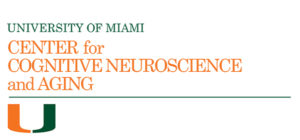
Trained instructors lead a comprehensive, hands-on overview of what is possible with R, using an example dataset. Go from reading data into R to data types, functions, conditional statements, loops, how to write in RMarkdown, as well as best practices for writing R code that others can understand and use. This workshop is designed to provide a foundation of basic concepts that all programming depends on, using R as an example.

Register Now | Syllabus forthcoming
Topics covered in this Workshop:
- The Unix shell
- Version control with git
- Programming with R

Since the goal of this workshop is to bring you up to speed with data analysis, it would be incomplete without instruction on a shell as well as a version control system. The shell is important in building reproducible data analysis pipelines where your R scripts may be just one component, Git is an incredibly useful tool for version control, collaboration and management of your coding projects.
This Workshop is capped at 35 participants, and is on a first-come/ first-served basis.
WHEN
Monday and Tuesday, December 2-3, 2019
8:30 AM Registration | 9:00 AM – 4:30 PM Course Hours, Both Days
WHERE
Rosenstiel School of Marine and Atmostpheric Science (RSMAS)
Science Laboratory and Administration Building (aka SLAB) | Library, Map and Chart Room
4600 Rickenbacker Causeway, Virginia Key, FL 33149
You may park on the first level of the first building as you enter on the left, or, you may park in the lot outside the fence along the road.
INSTRUCTORS
Tim Norris, PhD, Research Data Scientist | Cameron Riopelle, PhD, Data Services Librarian
NOTE: Please bring your own laptop (any OS).
____________________
Brought to you by the Graduate School, the Center for Cognitive Neuroscience and Aging, UM Libraries, and CCS, this 2-day workshop will provide you with the basic computing skills and best practices needed to be productive in a small research team. The format is a mixture of short seminars and hands-on practical exercises, and participants are encouraged to help one another, and to try applying what they have learned to their own research problems during and between sessions.
SPONSORS












